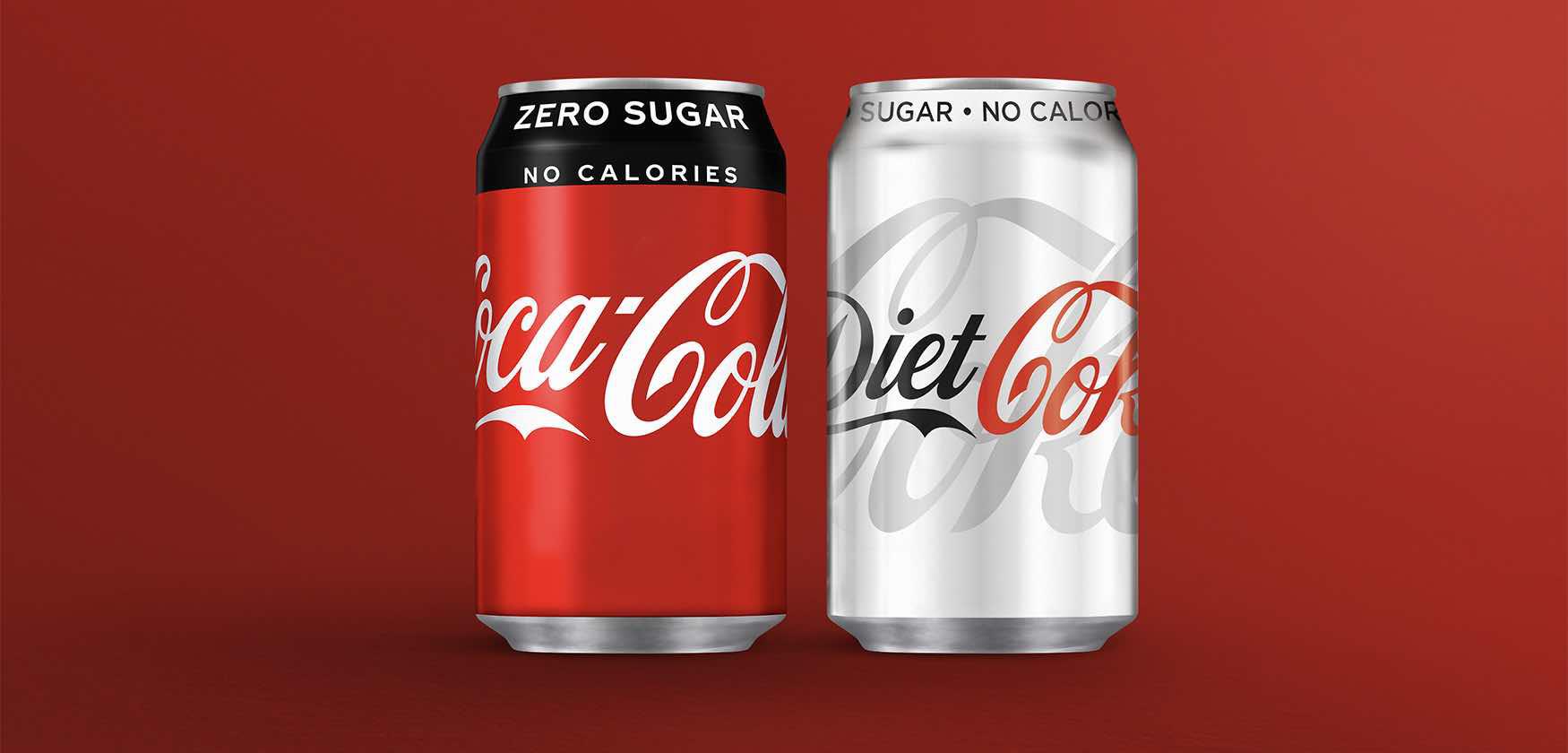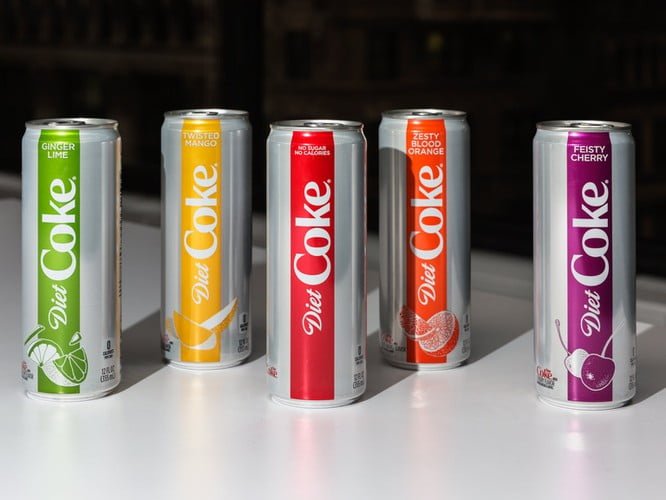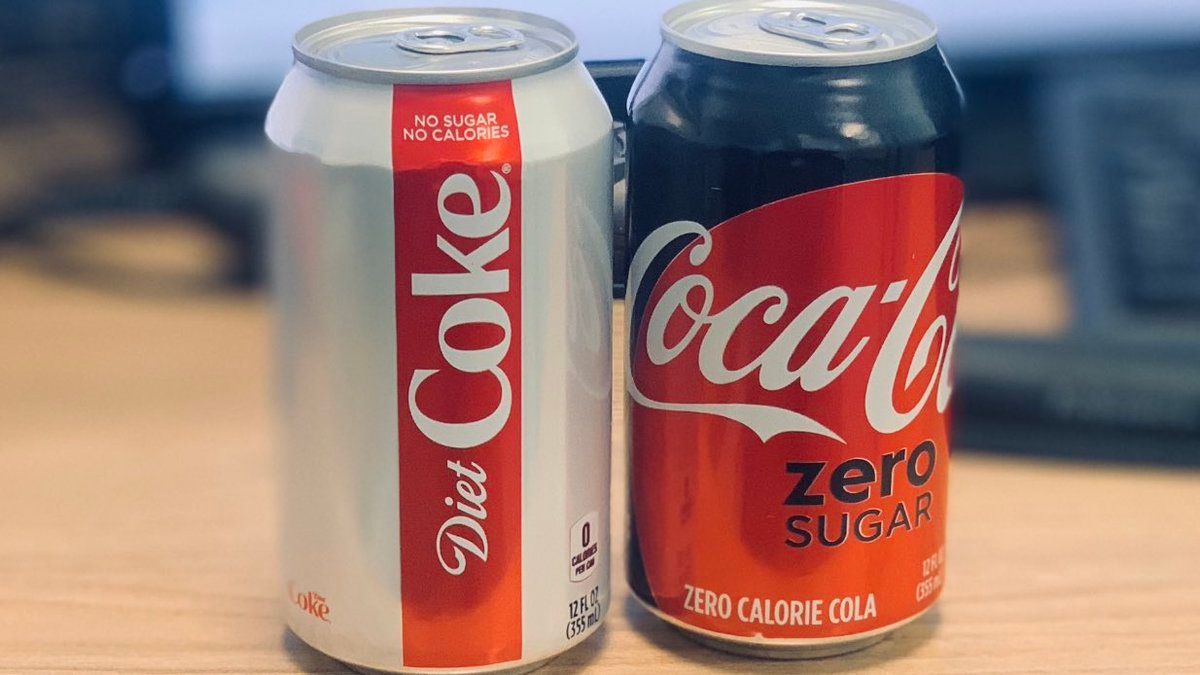
You’ve probably heard that reducing your intake of added sugar is beneficial to your health. To limit their added sugar intake, those who drink soda on a daily basis may consider switching to sodas made with artificial, or non-nutritive, sweeteners.
These substitutes make products taste sweet without causing the blood sugar increases that regular sugar can. Diet drinks are a popular way to avoid added sugars in beverages, but sodas with the word “zero” in the name have lately entered the market. Coca-Cola is a well-known example of a brand that offers both “diet” and “zero” options.
If you’re curious about the differences between Coke Zero and Diet Coke — and how to decide which is the better option for you — keep reading.
Coke Zero and Diet Coke nutrition facts and ingredients
The ingredients and nutrition facts for Coke Zero and Diet Coke are shown below. In this part, we’ll go over some of the major differences and similarities you should be aware of.
Nutrition facts of Coke Zero
Coke Zero has the following ingredients:
- carbonated water
- caramel color
- phosphoric acid
- aspartame
- potassium benzoate (to protect taste)
- natural flavors
- potassium citrate
- acesulfame potassium
- caffeine
It also includes the amino acid phenylalanine, thus those with phenylketonuria (PKU) should avoid it.
A 12-ounce (355-mL) serving of Coke Zero has the following nutrients:
- Calories: 0
- Total fat: 0 grams
- Sodium: 40 mg
- Total carbohydrates: 0 grams
- Total sugars: 0 grams
- Protein: 0 grams
- Potassium: 60 mg
- Caffeine: 34 mg
Coke Zero has no added sugars since it uses artificial sweeteners instead. It is available in several flavors, including cherry, cherry vanilla, orange vanilla, and vanilla. There is also a caffeine-free Coke Zero.
Nutrition facts of Diet Coke
Diet Coke has the following ingredients:
- carbonated water
- caramel color
- aspartame
- phosphoric acid
- potassium benzoate (to protect taste)
- natural flavors
- citric acid
- caffeine
Diet Coke, like Coke Zero, includes the amino acid phenylalanine, thus those with PKU should avoid it.
A 12-ounce (355-mL) serving of Diet Coke has the following nutrients:
- Calories: 0
- Total fat: 0 grams
- Sodium: 40 mg
- Total carbohydrate: 0 grams
- Total sugars: 0 grams
- Protein: 0 grams
- Caffeine: 46 mg
Diet Coke has no additional sugars since it uses artificial sweeteners instead. Regular Diet Coke contains aspartame, but you can also buy Diet Coke that has Splenda, a brand of sucralose.
Diet Coke flavors include ginger lime and feisty cherry. Diet Coke, like Coke Zero, is available as a caffeine-free option.

The major differences between Coke Zero and Diet Coke
These products are practically the same, particularly in terms of their key selling point: they do not include sugar.
What distinguishes the two is the type of sweetener used, as well as the caffeine amount, however, these two differences are unlikely to be crucial to most consumers.
While Diet Coke contains aspartame as a sweetener, Coke Zero contains both aspartame and acesulfame potassium, also known as “Ace K” or “acesulfame K.” Acesulfame potassium is yet another calorie-free sweetener that does not raise blood sugar levels.
Diet Coke‘s major sweetener is aspartame, and because ingredients are specified in weight order, it’s safe to assume that it includes substantially less acesulfame potassium. This suggests that the ingredients in these drinks are quite similar.
The caffeine concentration is another significant difference. Coke Zero contains less caffeine than Diet Coke. However, both beverages are far below the recommended daily caffeine intake of 400 mg per day for adults.
The taste of these two beverages is a source of debate. Some claim they can’t tell the difference, while others swear by Diet Coke or Coke Zero as tasting like the original flavor.
A comparison of tastes

Coca-Cola has revealed on its website and in marketing materials that it has developed a new recipe for Coke Zero. The business does not explain how it has changed but claims that it “has more real Coca-Cola flavor, still without any sugar.”
Because of the acesulfame potassium, Coke Zero has a slightly different aftertaste than Diet Coke. Many individuals believe that Diet Coke tastes more like regular Coke. Some, however, believe the opposite.
Neither tastes exactly like the real Coca-Cola. Each type may have a slightly different taste depending on a variety of factors, such as whether you obtain it from a beverage fountain, in a can, or in a bottle.
Potential Drawbacks
Drinking carbonated beverages in moderation has few negative side effects for the majority of people. Caffeine and artificial sweeteners, on the other hand, may have a negative impact on certain individuals, even when used in moderation. Adults should consume no more than 400 mg of caffeine per day, according to the United States Department of Agriculture (USDA). That’s around four cups of coffee, or nine or eleven 12-ounce (355-mL) cans of Diet Coke or Coke Zero. So, if you consume these sodas in moderation, you’re unlikely to go over the limit.
However, if you are particularly sensitive to caffeine, you should limit your consumption of these beverages. Aside from that, they have low caffeine content. According to the American Migraine Foundation, aspartame may cause headaches in certain individuals. While this reaction may vary, it’s useful to be aware of it ahead of time so you can connect the dots if you start getting headaches after consuming certain beverages.
Furthermore, some researches have suggested that aspartame may be carcinogenic, however other evidence contradicts this. Before we can link aspartame to cancer, we need to do more long-term, high-quality human research. Those who are more concerned about food ingredients may choose to avoid aspartame, which is fine. However, the Food and Drug Administration (FDA) regards aspartame to be safe.
Acesulfame potassium, like aspartame, has been studied for potential carcinogenic effects in both earlier and more current research. However, the data is still uncertain, and more long-term, high-quality human research is required. The FDA has also authorized acesulfame potassium.
Should we choose Coke Zero or Diet Coke?
There are only slight differences between Diet Coke and Coke Zero. As a result, there is no solid, verifiable reason to believe one is superior to the other. There are no major differences in terms of nutrition. Because their ingredient and caffeine contents are comparable, neither is healthier than the other.

Remember that diet soda is not a healthy beverage. It’s a tasty treat that can be enjoyed in moderation — and switching from regular soda to diet soda is a good place to start if you’re looking to cut back on added sugars. Whichever you choose will be generally determined by which tastes better to you. Coke Zero is considered to taste more like regular Coke, however, some people disagree and prefer Diet Coke over regular Coke.
In conclusion
Sodas made with artificial sweeteners, such as Diet Coke and Coke Zero, may appear to be a suitable choice if you want to reduce added sugars. While some of the artificial sweeteners in these two beverages have been criticized for their potential negative health consequences, drinking either in moderation should not be a reason for concern, especially when compared to the negative effects of its sugar-laden alternative.
Coke Zero and Diet Coke are nutritionally equivalent. The taste is the main difference between them. Kombucha or a probiotic soda may be suitable options if you want to reduce added sugars and non-nutritive sweeteners.

